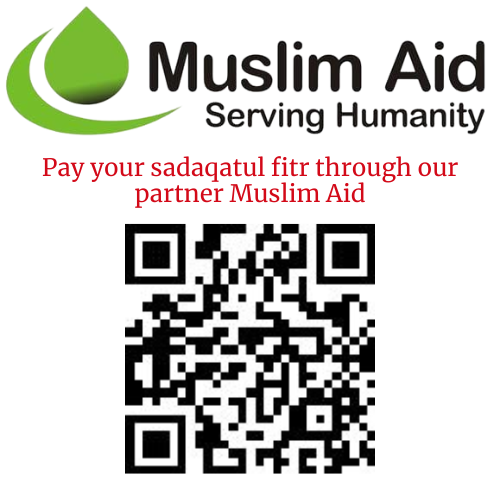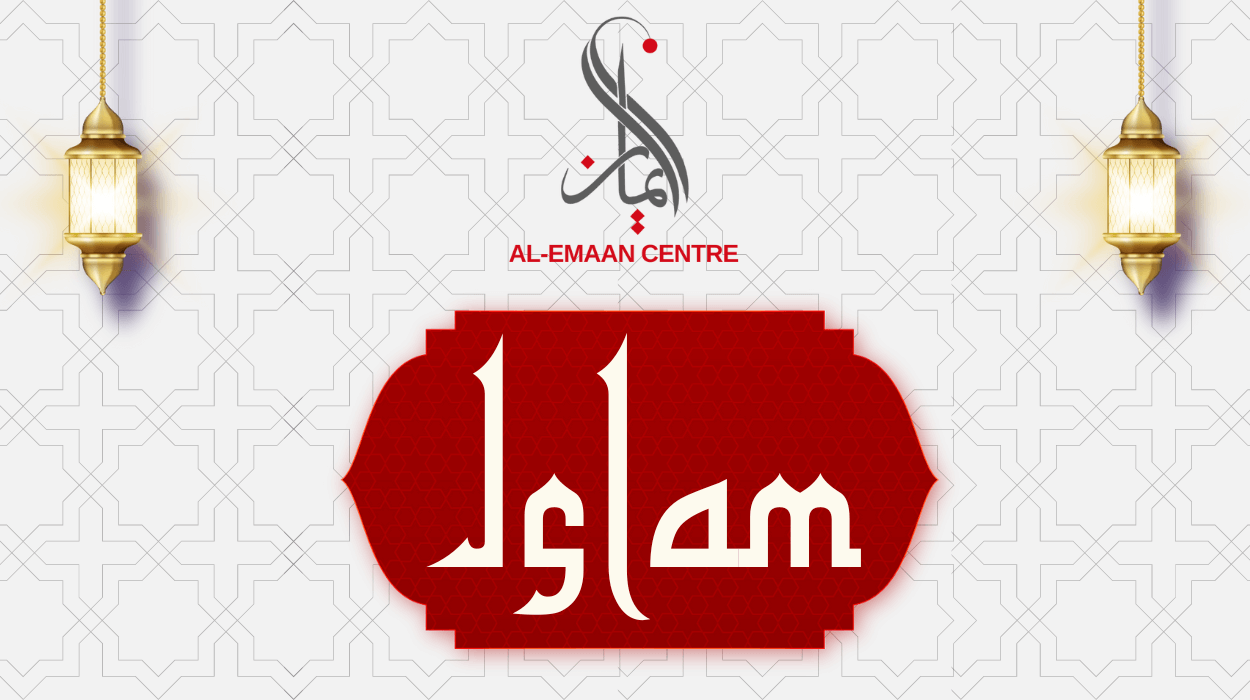
Islam is a holistic way of life that entails faithful devotion to God, with the word Islam translated as ‘submission to the will of God’. Muslims believe that the universe and all that exists has a Loving & Caring Creator, known through contemplation of His signs and recognition of His favours upon us. The Arabic word for God is Allah, and He is described through several Names & Attributes in Islam such as The Compassionate, The Merciful, The Wise, The Loving, The Just, The Forgiving, The Gentle and many more.
At the core of the Islamic belief is gratitude to God alone for all that exists, and praise for all that He has created. Muslims believe this to be the path of Abraham (peace be upon him) and all the Prophets before & after him including Adam, Noah, Moses, Jacob, Joseph, Jesus and several more (peace be upon them all). Muslims respect each & every one of the Prophets as role models; individuals whose lives we draw lessons from and seek to emulate. We believe that certain Prophets were given Scriptures and that the final Messenger Muhammad (peace be upon him) received through revelation The Quran, the final message from God and guidance for mankind.
Muslims consider this life to be a temporary testing ground towards our final abode, in an eternal afterlife of reward or punishment based upon our actions on earth. Our purpose in this life is to worship God, which involves leading a life of devotion to Him with heart, body & mind. This manifests as being God-conscious & humble individuals, purifying our hearts, reforming our characters, practising patience & forgiveness, embodying gratitude to our Creator through prayer, and embedding an altruistic attitude of charitable acts & kindness to all of creation.
Along with certain prescribed practises (such as prayer, charity & fasting), a principle in Islam is that all righteous acts throughout our daily lives, when done with the sincere intention of pleasing God, are considered acts of worship. Coupled with the qualities & values nurtured through our private devotions, communal worship features as a valuable aspect of belief. The notion espoused by the Prophet Muhammad (peace be upon him) of collectively supporting one another, and considerately caring for the welfare of our wider society is integral to the faith.
Central to the Islamic faith are the essential duties and practices known as the Five Pillars of Islam. These are:

Shahadah
01-FAITH
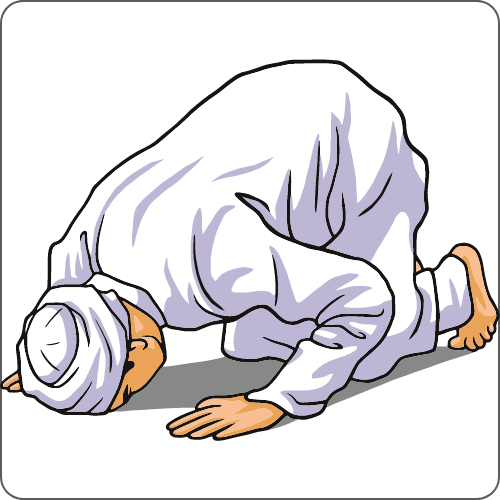
Salah
02-PRAYER
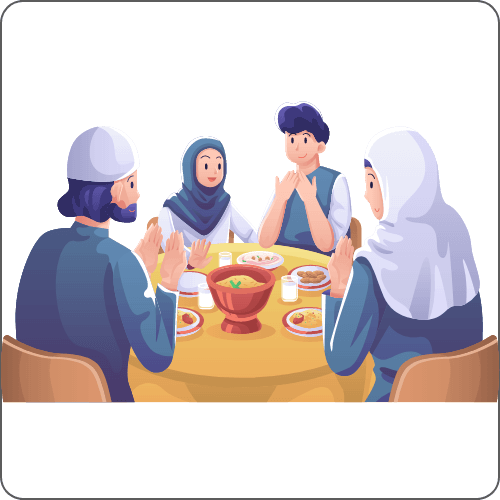
Sawm
03-FASTING
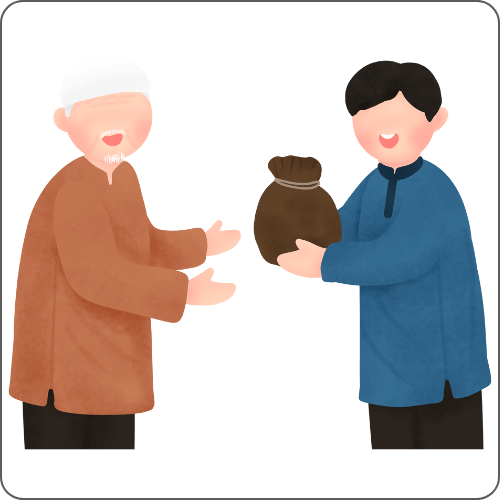
Zakat
04-Almsgiving
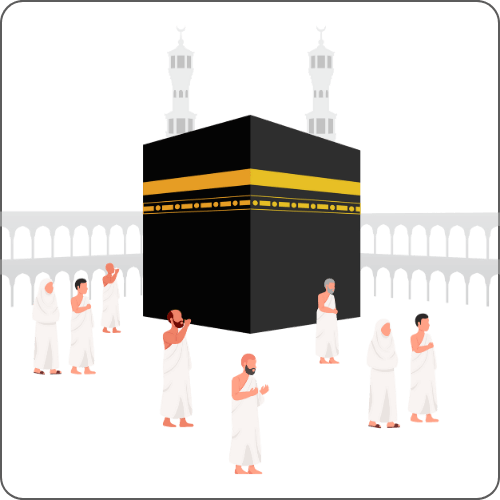
Hajj
05-PILGRIMAGE
01-Profession of faith (shahada)
The profession of faith is known as the shahada. It is the prerequisite for membership in the Muslim community, and an affirmation of the faith. Muslims are required to declare this profession in public at least once in their lifetime, but most Muslims recite it daily as part of their prayers. In Arabic, the shahada is as follows: “Ashhadu al-la ilaha illa-llah was ashhadu anna Muhammadar rasulu-llah” translated as “ I bear witness that there is no God but Allah and I bear witness that Muhammad is His Messenger” or more simply, “There is no god but Allah and Muhammad (peace be upon him) is His Messenger.”
The profession of faith is designed not only for public affirmation, but also to encourage true conviction and sincerity of mind on the part of the worshipper. The phrase is absolutely central to the practice of Islam. Muhammad (peace be upon him) is reported to have said, “These few words are equal to one third of the Quran.”
02-Prayer (salat)
Prayer is an essential duty of every Muslim, and the second Pillar of Islam. It is performed five times a day. These times are dawn, noon, mid-afternoon, sunset, and evening. Before prayer, there is ritual cleansing and purification. Typically this means washing one’s hands, mouth, nose, face, ears, forearms, head, and feet three times with the right hand. If there is no water is available, sand may be substituted. Prayer itself consists of three or four cycles of ritual bowing and prostration along with recitation of parts of the Quran and other prayers in Arabic. All end with the phrase, “May peace, mercy and blessings be upon you.”
Muslims can perform prayer just about anywhere, but the most favored place is in the mosque. A crier (muezzin) calls the faithful to prayer (adhan). The holy day each week is Friday. The congregation of worshippers at the mosque is led by the religious leader or imam. Prayers, wherever they take place, must be performed in the direction of Mecca. This direction is indicated by the kiblah, a word meaning “direction of prayer.” It is indicated in a mosque by a wall (referred to as the kiblah wall) that is usually marked by a niche called the mihrab.
03-Fasting (sawm)
Fasting (sawm) is a ritual observance during the month of Ramadhan , the ninth month of the Islamic calendar. Muslims are required to abstain from eating, drinking, and sexual activities between sunrise and sundown. Nursing and pregnant mothers, the sick, and children up to the age of puberty are permitted to break the fast. Ramadhan is important, because it marks the time in the year when the Quran began to be revealed to Prophet Muhammad (peace be upon him).
04-Almsgiving (zakat)
The fourth Pillar of Islam is a call to charity. There are two categories: compulsory and voluntary. Compulsory almsgiving resembles a tax for all Muslims, payable to either the community or state. It is calculated on the basis of one’s possessions and income, and usually equates to 2.5% of a person’s annually accumulated wealth. This system ensures that the poor will be at least partly provided for and encourages a sentiment of sharing among the various social classes. Almsgiving also has spiritual value, as a way of atoning for one’s sins and ensuring salvation in the afterlife. Voluntary almsgiving (sadaqa) should be performed freely and spontaneously, with discretion and sincerity.
05-Pilgrimage to Mecca (Hajj)
All Muslims who have the physical and materials means to do so are encouraged to visit Mecca at least once in their lifetimes. The pilgrimage occurs during part of the twelfth month of the Islamic calendar. Modern transportation allows millions of Muslims to make the pilgrimage to Mecca, where the focus is the structure known as the Ka’ba. Pilgrims wear white, symbolizing the equality of all Muslims before God.
Having arrived at Mecca, each pilgrim typically walks around the Ka’ba seven times. This is followed by a set of other ritual observances such as walking between the hills overlooking the Ka’ba, standing on Mt. Arafat, and traveling to nearby Minah, all sites that commemorate aspects of Islamic history and faith. Pilgrims also frequently visit the Dome of the Rock in Jerusalem and the Mosque of the Prophet Muhammad (peace be upon him) in Medina. Both the month of pilgrimage to Mecca and the month of Ramadhan end in festive celebrations.
We believe Islam to be a way of life that offers contentment at heart and a rekindling of our relationship with the Divine based on the call of all the Prophets. We hope that through the work we are able to carry out here at Al-Emaan Centre, we can contribute towards realising this path, cultivating this personal journey and facilitating co-operative work to improve the lives of all.
If you’re interested in finding out more or have any questions please feel free to email us at
info@al-emaan.org.uk


